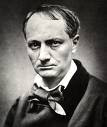Having commanded Mnemosyne to speak, Nabokov seems unable or unwilling to make her shut up. This work, the least impressive of Vlad the Inscriber's longer prose compositions, is distinguished by a desultory, rambling quality which none of the novels possess. Whenever Nabokov's fictional narrators wander tangentially away from the main line of a narrative, there's always a good reason for--and much of interest in--the digression, but when Nabokov-as-narrator wanders into genealogy, the joys of boys' western novels or the finer points of chess problems, this reader nods. There is too much that is boring and underexamined in this mis-subtitled work. (It's no kind of 'autobiography' at all; it is in fact the last example in the Western tradition of that quintessentially 18th-century literary form, the aristocratic memoir.) And it's surprising that Nabokov, who can ironize anything in his fiction, seems unable to cast a colder eye upon his childhood world. Instead, he gives us, for the most part, beautifully-written sentimentality, an almost ahistorical idyll, a record of a childhood paradise lost to the forces of ideology. Of course, the Nabokovian idyll rested on the backs of those barely seen servants, but Our Memoirist prefers not to notice the politics of his idyll--a repressive strategy as doomed as Zhivago's pastoral retreat... This is an odd, obsolete work, redeemed only by the beauty of its prose; even Nabokov's worst book is better written than the best book of just about any of his contemporaries... The biggest problem with Speak, Memory is the lack of any narrative arc. Rather than being a kind of postmodernism avant la lettre, this lack is better understood as a result of the book's piecemeal production. Each chapter, written at a specific time for a specific magazine, still bears the stamp of its occasion and resists integration into an autobiographical narrative. This is a recipe for boredom and redundancy. Also, Nabokov is simply too sentimental to subject those he loves (and those places he loved) to the burning ironic acid he deploys in Pale Fire and Lolita. This is as 'nice' as Vladimir Vladimirovich gets, and the work suffers for it.
There is, of course, another side to this book. There are sparkles in the Nabokovian mist: a few brilliant descriptive passages; an almost anthropological (or phenomenological) description of the life of the pre-Revolutionary Russian upper class; some passages that appear to have influenced W.G. Sebald who, in a rare critical lapse, pronounced this book (or at least parts of it) 'sublime'. (Maybe not so much of a lapse, if thus qualified.)
Sunday, December 14, 2008
Subscribe to:
Post Comments (Atom)










No comments:
Post a Comment